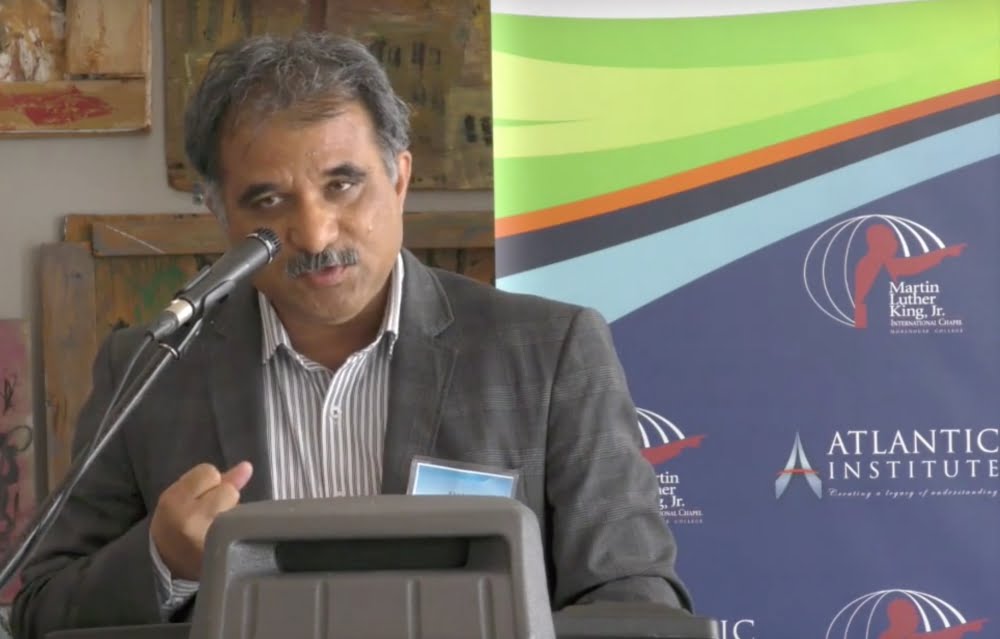Gradual transformation of Turkey into an authoritarian entity under Erdogan’s leadership

Date posted: October 13, 2016
Anwar Alam
The July 14-15, 2016, failed military coup in Turkey, among others, has accelerated and strengthened the pace of authoritarianism of the Erdogan regime — notwithstanding the democratic aspiration reflected in the people’s resistance against the coup — a process that was set in motion in the aftermath of December 2013 corruption exposure against the regime. Informally called Rais, today Turkey is transformed into a one-man rule. How does one explain the relapsing of Turkey into an increasing authoritarian polity under the very party (AKP) and the regime, which is credited with bringing in a model of ‘Muslim Democracy’ combining Islam, secularism, democracy and economic success between 2002 and 2011? What makes Erdogan to remain highly popular and undisputed leader of Turkey despite undermining its own democratic heritage? What are the implications of a growing Turkish authoritarianism for the stability of the region and the defeat of ISIS?
There are multiple factors that account for the gradual transformation of Turkey into an authoritarian entity under Erdogan’s leadership.
First, it has to do with a weak democratic tradition of modern Turkey itself. The modern Kemalist Republic was anything but democratic! The ‘democratic experiment’, which was witnessed in a different period of modern Turkish history since the inception of Republic, was at best a series of ‘piecemeal political reforms’ — the contraction and expansion of which was guided by the factor of survival of the regime. For the political class, democracy, like secularism and nationalism, remained a tool of securing state power. Given this political tradition and with successive electoral victories between 2002 and May 2013 at all levels of elections, Ergodan skilfully navigated the Kemalist-dominated political terrain with the combination of support of his own Anatolian Muslim constituency, and the Gulen movement from below and the politics of European Union from above, in the name of building ‘democratic Turkey’ and succeeded in weakening and wresting control over State institutions from the Kemalists. As he moved in the direction of becoming of ‘Leader of the nation’, parallel to Kemal Ataturk, since 2010 he found the ‘social presence’ of Gulen movement and its inspired people in State institutions, ‘European Union’ and ‘democratic framework of governance’ as obstacles in the path of exercise of his unfettered rule.
However, notwithstanding the growing democracy deficit in political governance, the ‘Muslim Turkey’ or what is called the Black Turks (representing religious, marginalised and discriminated Turkish Muslims under Kemalist rule), continue to provide crucial support to the Erdogan regime for fear of return of ‘Secular Turkey’ or ‘White Turks’ representing Kemalists, secularists, atheists and the Alevi segment of Turkish society. It is mostly elements of this Muslim support base who were at the forefront of resisting the army coup for the fear of return of Kemalists to power, given the fact that all previous military coup in Turkey (1960,1970, 1980, 1998,) have ousted Muslim-friendly governments. The government’s allegation of the involvement of Gulen supporters or FETO in this military coup makes no difference to these Muslims as since the corruption case in December 2013 the Erdogan government has succeeded in portraying the Gulen movement as part of a Western conspiracy to dislodge the government.
Second, the political tradition of Middle Eastern States, including Turkey, does not tolerate the autonomous existence of any other religious-social movement or organisation, lest the latter pose a threat to the regime in future. The Gulen movement, with its Islamic roots, development, autonomous resources and global networking and presence, is perceived — whether real or imaginary — to be a strong threat to the Erdogan regime and hence needs to be eliminated at the earliest opportunity and context. The December 2013 corruption cases, which the government called ‘civilian coup’, and July 2016 failed military coup provided golden opportunity to accomplish the task, resulting in the massive purge of state officials, numbering more than 100,000, and confiscation of resources with USD 4 billion linked with the Gulen movement.
Third, the State in the Muslim Middle Eastern history including Turkey enjoys a very high degree of legitimacy on account of undifferentiated understanding of State, nation and community among vast section of people as well as the fact that the State is looked upon as the ‘Benevolent Father or Guardian’ personified in a strong individual. Thus it is ‘statism’ that counts or overlaps the idea of nationalism, which, in turn, contributes to the legitimization of the authoritarian tendency of the State. A crisis of State then easily becomes a crisis of Islam/ community that swings the support of people in favour of State against the perceived internal or external threat.
Fourth, in its display of authoritarian mindset, the Erdogan-led AKP is also aided by the tradition of political Islam as well as the political tradition of Turkish State, which seeks to control and dominate all aspects of national life. Beyond a crude instrumentalisation of Islam, Islam’s ethical and moral perspectives ceases to be a factor in its governance. This partly explains the lack of political flexibility in accommodating the dissenting voices including the Gulen movement.
As Erdogan moved on the Islamic path of authoritarianism with political ambition of becoming of leader of Muslim world, it has adversely impacted the stability of Turkey — both internally and externally.
Internally, it has deeply fragmented the Turkish society along ethnic, sectarian and religious lines resulting into Turkish-Kurdish, Sunni-Alvi, Muslims-secular conflicts with greater frequency, even though it paid good political dividends to the regime. Second, by crushing the Gulen movement it undermined the Islamic ideational resources needed most to fight Islamic terrorism. Further, by flushing out State officials and silencing all dissenting voices by linking them with FETO, PKK and terrorism, the Erdogan regime has crippled its administrative capacity to effectively counter the menace of terrorism. No wonder, since 2013 terrorism of one or other form has hit Turkey with greater frequency.
Externally, as Turkey increasingly became part of the ‘Sunni axis’ along with Saudi Arabia and Qatar and its political harbouring of Muslim Brotherhood of Egypt and HAMAS, it further contributed to the Shia-Sunni conflicts in the region. This in part explains its reluctance to fight decisively the ISIS threat, partly for fear of loss of a section of Turkish Muslim support.
Its recent military foray into Syria, the Euphrates Shield Operation, was more intended to prevent the Kurdish state becoming a reality on its border with Syria with all possible means including the plan for demographic change, if so required, by resettling the Syrian Arabs living in Turkey into the Kurdish-dominated area of Jazeera Kobane, Afrin, Manbij, Al-Bab and Jarablus, than to physically liquidate the ISIS. In the past the Turkish government has indirectly supported the ISIS to push a section of Syrian Arabs living within Syria into Kurdish dominated areas to change its demographic structure.
In addition, the operation was also meant to end the increasing Turkish isolation and secure its presence on the table of future international negotiation related to Syria. Its hypocritical attitude on Syrian migrants is further exposed when it chooses to remain silent on an Arab government closing its gate for its Syrian refugees (co-Arab brothers); while making fun of human rights of European States and accusing them of racism for refusing to accept the Syrian migrants! As the Turkish government increasingly treated the ‘ISIS’ and ‘Refugee Issue’ as bargaining tools with Europe and the US, the latter has increasingly come to view the Erdogan government as an unreliable partner in the fight against terrorism and promotion of peace and regional stability. Facing isolation and economic stagnation, the government quickly moved to mend its ties with Russia and Israel, partly to revive its tourist industry but it is too late to stem the economic downturn.
In view of the above, Turkey’s economic prospect and democratic future looks bleak. Rather, one fears the return of ‘Pakistanization of terror’ in Turkey, given the fact that terror and terrorism often grows in the fertile conditions of political authoritarianism, democracy deficit in governance and relative cultural and material deprivation.
The author is Professor, Department of International Relations, Zirve University, Gaziantep, Turkey
Source: Daily News & Analysis , September 23, 2016
Tags: Military coups in Turkey | Persecution of Hizmet by Erdogan | Terrorism | Turkey |
























